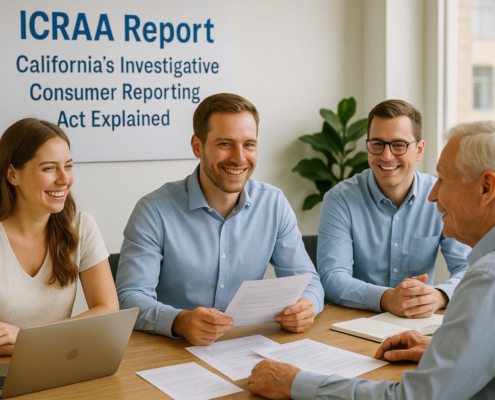What is meant by the term “fiduciary duty”?
Members of a corporate board are entrusted with a great deal of power and duty. Their duties include keeping an eye on the company’s finances, making sure it’s heading in the right way, and protecting the shareholders’ interests.
In order to carry out these responsibilities, board members must have a clear grasp of their fiduciary duties.
Directors (also called “fiduciaries”) have an ethical and legal obligation to look out for the company’s and shareholders’ best interests. It’s the first and foremost responsibility a board member has to uphold the organization’s legal and professional standing.
The importance of fulfilling fiduciary obligations is multi-faceted:
- Maintains the highest standards of legal and moral conduct
- Encourages confidence as well as trust
- Keeps both sides’ interests safe
- Promotes responsibility
- Keeps the playing field level for everyone
A fiduciary’s key responsibilities
Which three responsibilities are most important for a fiduciary? As a fiduciary, you have an obligation to exercise care, loyalty, and obedience as a board member. Good corporate governance hinges on these responsibilities, which in turn help board members make choices that benefit the company.
- Duty of care: This obligation says that board members should be careful and diligent. This means showing up to meetings, contributing thoughtfully to conversations, reading up on pertinent documents, and making judgments after considering all of the facts. Each board member should be qualified to grasp the ins and outs of the company and make good decisions based on that knowledge.
- Loyalty duty: This duty requires complete loyalty to both the company and its owners. Members of the board should not put their own interests or those of third parties ahead of the company’s, and they should do their best to prevent conflicts of interest. Among other things, they should not engage in self-dealing activities, take advantage of company chances for their own benefit, or use their position for personal gain.
- Obedience duty: It is the responsibility of every board member to uphold the law and the company’s governing instruments, including the bylaws and articles of incorporation. This makes sure the company follows all the rules and stays within the law.
These three responsibilities are essential, but they are by no means exhaustive. To maintain honesty, openness, justice, and trust, there are several other critical fiduciary responsibilities:
- Duty of good faith: Everything you do must be honest, and you must base your choices on integrity. At all times, the company’s success takes precedence. Equally important is that these choices are consistent with the organization’s guiding principles.
- Confidentiality: In order to safeguard the organization’s operations, finances, and plans, it is imperative that all board members comply with confidentiality and privacy agreements.
- Duty of oversight: Members of the board must actively keep an eye on all parts of the business so they can make smart decisions.
- Prudence duty: To ensure sound decision-making, decisions must be made with care and caution, utilizing facts and knowledge. The safety of the company’s assets, resources, and good name depends on constantly assessing potential risks.
- Responsibility: Board members need to be responsible for their actions and choices, making sure that all parties and the public can see what they’re doing.
Different kinds of fiduciary arrangements
A wide variety of relationships can be considered fiduciary. A fiduciary relationship exists when one person provides advice or acts on behalf of another. They have to make sure that their collaboration is in the beneficiary’s best interests.
Relationships that are considered fiduciary include:
Directors of corporations have a fiduciary duty to their shareholders to maximize shareholder value through decision-making. Among these responsibilities are the promises to behave in the best interests of the business, to be loyal to the firm, and to manage its affairs with care and diligence, without engaging in any conflicts of interest or utilizing its knowledge for one’s own benefit.
An attorney’s duty is to put their client’s interests ahead of their own, earn their trust, represent them competently, and be forthright with them about everything that can influence their case or decision-making.
Professionals in the financial advisory field owe it to their clients to put their needs first, provide them objective recommendations, and be forthright about any potential conflicts of interest. Depending on the client’s risk tolerance and financial objectives, they should suggest investments, execute transactions to the client’s advantage, and keep a close eye on the client’s money and investments.
A fiduciary relationship exists between a trustee and a beneficiary when the former manages the latter’s share of a trust’s assets. Careful and competent management of trust assets is required of the trustee, who must also prevent any appearance of bias and work only in the beneficiary’s best interest. The trustee is responsible for making sound investment decisions, protecting the trust’s assets, and distributing them in accordance with the trust’s provisions. For anything that the trustee does or decides to do with the trust, the beneficiary has the right to hold them legally responsible.
Many commercial interactions involve the roles of agent and principal, where the agent is authorized to represent the principal in matters such as negotiations, contracts, and other business operations. Also, the agent has an obligation to give the principal any and all facts that could influence the principal’s choice.
Typical board member fiduciary duty violations
Members of the board can fail in their duties as fiduciaries in a variety of ways. As an illustration, consider the following:
Not gathering enough information to make a decision: skipping meetings, not reading crucial financial data, or not asking enough questions about potential deals are all examples of this.
A board member is engaging in self-dealing when they use their position to benefit themselves financially, for as by giving contracts to their own companies or by allowing dangerous transactions.
- Self-dealing: This is when a board member uses their position to get something for themselves, like giving contracts to their own businesses or okaying risky deals that will make them money.
- Missing warning signs: This may include ignoring unethical behavior by upper management or not conducting investigations into possible misconduct within the company.
- Failure to supervise management: Directors must keep an eye on the company’s upper echelons to make sure they’re looking out for the company’s best interests.
- The unauthorized disclosure of sensitive data: It is a violation of fiduciary obligation to divulge sensitive information, whether on purpose or not.
- Actions that are unethical and unlawful: A serious violation of fiduciary duty includes unethical behavior like embezzlement or fraud.
- Favoritism or nepotism: It may be considered a violation of duty or loyalty to give friends and family preferential treatment over others.
- Refusing to provide information: Withholding crucial details demonstrates an absence of openness, which is a violation of obligations related to honesty and responsibility.
What happens when you break your fiduciary duties?
Board members and the company alike are vulnerable to three major outcomes that might result from failing to uphold fiduciary obligations. The persons involved may face significant financial and legal repercussions as a result of these outcomes, which might jeopardize the company’s future. In the event that the company breaks the law, its officers and directors could also face jail time.
A breach might lead to litigation and, in the worst-case scenario, criminal penalties. Fines, reparations, and injunctions are all possible outcomes of legal proceedings.
Significant financial ramifications can befall both parties in the case of a violation of fiduciary duty. This may lead to increased expenses, decreased income, penalties, and potential economic setbacks in the future.
Betraying one’s fiduciary duty can damage one’s credibility and damage a company’s ability to succeed in the long run. The impact on relationships, commerce, and public opinion may be substantial.
Examples of fiduciary duty breaches
Many people have been greatly affected by high-profile fiduciary breaches. Here are two instances of past breaches that have been extensively documented.
1. Enron
When Enron collapsed in 2001, it was because of one of the most notorious fiduciary breaches in history. The board failed in two of their responsibilities, which included:
Inadequate supervision: the board let the management to conceal debts and exaggerate earnings.
Conflict of interest: members of the board were guilty of not telling others about their financial ties to certain projects.
After suffering enormous financial losses as a consequence of the breaches, Enron’s share values crashed by about 99 percent, prompting the company to declare bankruptcy.
2. A well-known clothing brand
A big worldwide fashion label was sued in 2015 when it was determined that it had violated its fiduciary duties. Among these violations were:
The board’s insistence on selling the company for a price that would hurt shareholders’ pockets was an example of how they failed to maximize value for shareholders.
Board members’ bias toward their own interests rather than those of the company or its shareholders led to a conflict of interest.
A lack of thorough investigation and consideration of other sale bids led to accusations that the board made choices without proper due diligence.
In the end, the brand sale went through, but the state vice chancellor dismissed the case. However, there was widespread reputational harm.
Guidelines to Maintain Fiduciary Duties
In order to protect themselves from potential legal action, board members might adopt a number of measures. If you want your board to fulfill its fiduciary duty, follow these eleven guidelines:
Members of the board should familiarize themselves with their legal responsibilities and the duties that come with their position as fiduciaries. To do this, you may need to see an attorney or participate in a training session.
Members of the board should take an active role in board meetings, inquire about any proposed transactions, and keep themselves well-informed about the company’s operations and finances.
Staying apart from management is important. Board members shouldn’t get too cozy with management and should speak out against management’s actions when they’re wrong.
Members of the board should record their activities in minute-by-minute form, including the steps they take to reach a decision. Claims of a violation of fiduciary duty may find this to be an effective defense.
Directors should inform their colleagues of any actual or prospective conflicts of interest and abstain from casting a vote on any issue involving such a conflict if it becomes apparent that their participation would be prejudiced.
Directors and officers (D&O) insurance can shield board members financially in the event of a breach of duties lawsuit.
Not knowing the rules is no justification for breaking the rules, therefore it’s important to study up on governance policies and processes.
The entire board should be in sync and looking out for the company’s and shareholders’ best interests, therefore it’s smart to do board self-assessments on a frequent basis.
Boards are less likely to fail in their fiduciary responsibilities when members are forthright and honest with one another and work to resolve problems and disputes as soon as they arise.
Always err on the side of caution, ask plenty of questions, and gather as much information as you can before making a decision; keeping risk management and prevention in mind should guide all of your actions.
Promote an environment of lifelong learning by ensuring that all board members are well-versed in the latest developments regarding their legal obligations and fiduciary duties.































